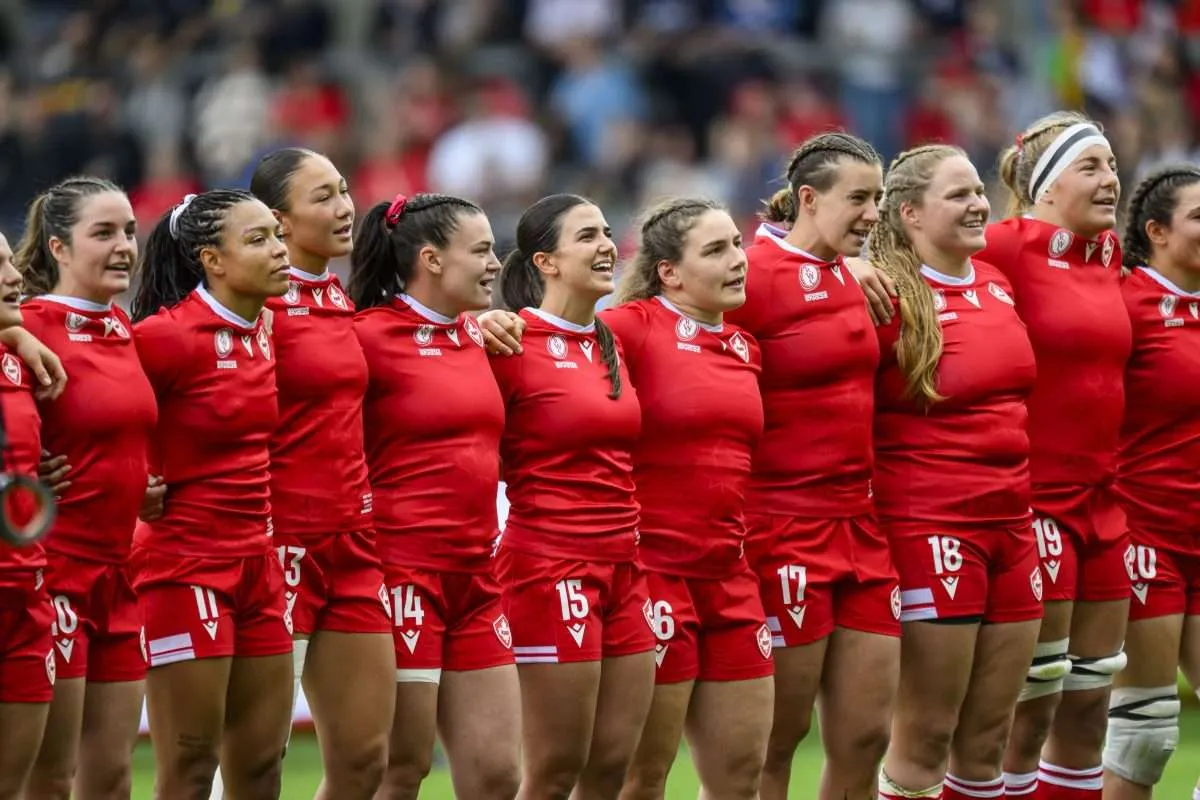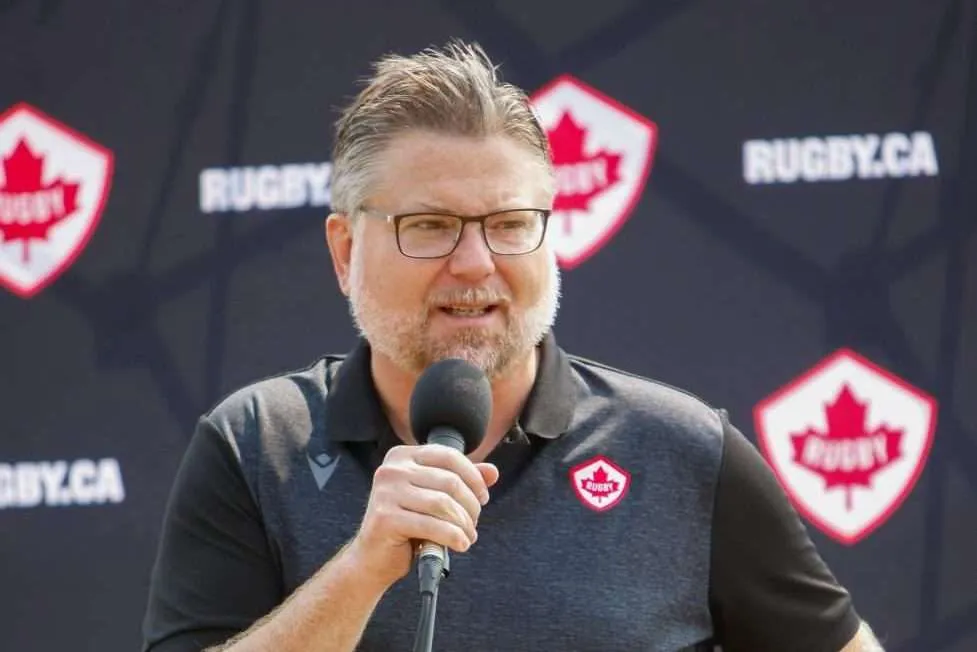These days he lives in Ottawa – “it’s a beautiful city”. But even when growing up on the other side of the border he felt a certain affinity with Canada. “I grew up in Michigan,” he explains. “The northern peninsula is home – that’s where my folks are.
“So if your boat is drifting a little bit too far, if you get a westerly wind on Lake Huron when you’re out catching white fish, you end up in Canadian waters pretty quick.
“And because we were very close to the border, back in the day when you used to get your television through an aerial, we used to watch Canadian TV. In fact we’d quite often watch the Olympics on Canadian TV, because we thought the coverage was better. Yeah, we had a lot of influence from Ontario, for sure.”
And Canada, in turn, has inherited a lot from Scotland – a factor which helped Bombrys settle into his post. “There’s a lot of Scottish influence in Canada everywhere you look, which is kind of fun for me. They really value a lot of similar things: being humble, hard-working . . . .
“They just want to get on with it, do a good job, and they’re not afraid to ask questions. They want to get better.
“I just found a lot of similarities. It’s quite enjoyable in that regard.”
Having said that, he admits that his new job took a bit of getting used to, even if some of his previous experiences came in useful. “I’d been in the UK for 25, 26 years, and working in rugby for pretty much all that. And I was the only North American voice in the room off the field, in the business and in the various committees I sat on.
“So I kind of felt really privileged to be in this position where I had this North American perspective, but I got to learn so much and meet so many people and had so many great experiences, that when I got the opportunity to come to Canada I thought ‘Yeah, that would be great, maybe I can put these experiences to work’.
“But I didn’t know anyone in the Canadian sports system, I didn’t know anyone in the Canadian government, and I’ve learned those relationships are very important. So I had a bit of a learning curve as well. I had the rugby experience, but I had to come in and do a lot of listening and learning at the same time.
“Tier 2 is really hard. A lot of heavy lifting. A lot of the things you can almost take for granted in a Six Nations country, don’t exist in a place like Canada.
“And Vancouver is further from Nova Scotia than the UK is. I don’t want to labour it, because that’s Canada, but it adds a little layer of cost and complexity.
“In most of Canada you’re trying to fit games into a Canadian summer, which isn’t the longest, apart from out west in BC [British Columbia] where it’s a British season out there.
“Yeah, there’s challenges, but there’s also opportunities, and we have a community of players who are just so passionate and love the sport. The lengths that they’ll go to play their sport is impressive, and I think other parts of the world could learn a bit from that.
“But some of the strengths we have is we actually have a lot of people who play rugby across the country. The Canadian women have always been strong, but these last two World Cups have really increased the profile and the quality of the women’s team and have really gotten the wider rugby public to take more notice.
“I’ve had a lot of people coming up to me saying ‘When did we get so good?’ And there’s a little bit of like, We’ve always been strong, but yeah, we have actually matured and come of age a little bit too.”

Scotland face their toughest test yet at this World Cup against Canada in Exeter at lunchtime on Saturday. Image: ©Craig Watson – www.craigwatson.co.uk
The men’s team have yet to come close to emulating the women and becoming one of the planet’s leading teams, but progress has been made in the past three years, organisationally at least. And Bombrys is hopeful that rugby as a whole in Canada can steadily progress.
“When I got to Rugby Canada in 2022, the Canadian men’s national team had no fixtures between that date and the end of time,” he says. “And they hadn’t had many fixtures coming through the pandemic. Now we’ll have had two years with a full list of fixtures.
“We have this mantra, this phrase called One Squad, that we launched as part of our strategy a year and a half ago. We’re all working together, men’s and women’s rugby, sevens and 15s.
“When I got to Rugby Canada they were all quite disparate groups and we’ve tried to bring that together, and bring the staff together. We’re working really hard to try and get the community more aligned and more pulling in the same direction.
“Now we’re seeing crossover between sevens and 15s, and a fair few of our Olympic silver medallists from Paris last year are here. So that’s been really great.
“The other unique factor about Canadian rugby is because we don’t have a Six Nations to feed us financially, the men and women are pretty much in the same place. But it’s our women’s programme that is really leading the way in terms of profile and opportunity. It’s kind of fun to see that journey and be part of it, and hopefully it will make the country very proud and be more excited about rugby.
“A year ago we decided we would fund this team as well as we can. I think we’ve put more behind this campaign than Rugby Canada has put behind a team but it wasn’t enough, so we started a campaign to raise $1m to give them preparation.
“I sat down with the leaders during WXV and asked where they wanted me to focus my energy. And they were pretty clear that, while they need some financial support to get through – we do pay them a stipend, but it’s not very much – they wanted us to focus on getting time together. [10mins]
“We’ve nearly raised it. They’ve had some really strong preparation. That in itself has been a unifying opportunity for the country.
“This is live on national TV in Canada and I think it really puts a stake in the ground for the next generation of boys and girls that want to play, to inspire them. It’s putting rugby up in the national mindset as a sport that Canada is good at and has a lot of heritage in.
“Hopefully we’ve got a successful team at this World Cup, and a men’s team going to the next World Cup, and maybe there’s a little bit of momentum there.”
So much for the present and future. As for the past: was there ever a time when Bombrys thought he would one day be CEO of Rugby Canada?
“I don’t think rugby was even on the list when I was at school. I didn’t even know what rugby was. So no, not really.
“But I’ve always followed Canadian rugby. And at Glasgow we had some great Canadian players. I think I probably signed more Canadians than anyone else, and a lot of that was because Rugby Canada would make an effort and get in touch.
“I guess because they knew we had DTH van der Merwe and they knew I was North American, I think they thought ‘Let’s keep that dialogue going’. They were quite regularly trying to push players our way. We signed Taylor Paris, we signed Djustice Sears-Duru, Connor Braid.
“So through that I got to know a little about Rugby Canada. I knew that there are good players in Canada.”
That mention of the Warriors leads us to discuss his decade at the helm there: a period that took in the move from Firhill to Scotstoun, the 2015 PRO12 triumph under Gregor Townsend, and the subsequent establishment of Glasgow as a serial contender in what is now the United Rugby Championship. But, when I ask him what he is most proud of from his time in Glasgow, he modestly declines to bask in his own achievements, and instead praises his successor.
“I said to Al Kellock when he took over that I really wanted it to kick on, and I think it has kicked on,” he says. “They’ve got that big game at Hampden now” – the 1872 Cup match against Edinburgh – “and won another title.
“There’s still a lot of the same faces, so for me it was a real treat when last summer Scotland came over and played Canada in Ottawa, which is where I live. It was a week or two after the URC final and I got to shake hands with a bunch of the boys who had played in it. Yeah, for me that was really special.”

